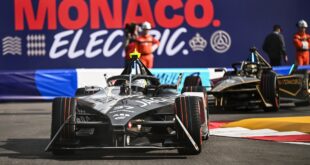 The uptake of electric vehicles (EVs) in South Africa has been slow in comparison to other world markets. While local consumer interest in new-energy vehicles continues on an upward trajectory, demand remains subdued due to a number of factors, key among these being the relatively high cost of EVs when compared to vehicles powered by an internal combustion engine (ICE).
The uptake of electric vehicles (EVs) in South Africa has been slow in comparison to other world markets. While local consumer interest in new-energy vehicles continues on an upward trajectory, demand remains subdued due to a number of factors, key among these being the relatively high cost of EVs when compared to vehicles powered by an internal combustion engine (ICE).
Following intensive industry lobbying, through the National Association of Automobile Manufacturers of South Africa’s New Energy Vehicle Committee, there was hope for a government pronouncement that would result in a reduction in the import duties imposed on electric vehicles. This would result in a drop in the retail price of EVs.
However, South African’s policy on EVs, as previously communicated by Minister of Trade, Industry and Competition Ebrahim Patel and more recently by Finance Minister Enoch Godongwane in his budget speech, remains focused on advancing the country’s aspirations to become a manufacturing hub for EVs and EV batteries, while demand stimulation through reduced import duties and incentives for end-users would not be considered in the near term.
With the current taxation model set to continue, where EVs attract import duties of 25% as opposed to the 18% imposed on ICE vehicles, it is up to the various players in the automotive sector to devise new ways to stimulate greater demand for EVs. Better strategies are required to highlight the solutions that are available that make EV ownership a viable option in South Africa.
From a vehicle finance perspective, finance options such as Guaranteed Future Value (GFV) could be ideal for customers who worry about the aggressive depreciation that generally plagues high value cars like EVs.
As the name implies, GFV means the future residual value of a vehicle can be guaranteed at the outset of the finance term, thereby protecting the vehicle from excessive depreciation, irrespective of what happens in the new or used car market. When the time comes to trade in their EV, GFV gives owners the peace of mind of knowing exactly how much the vehicle will be worth. This, of course, would depend on the condition of the vehicle and the usage parameters being met.
A fundamental shift is also required in the way EVs are marketed. A lot of emphasis is currently placed on the performance and range of EVs, which is appropriate for the high-end models that are currently on offer in the local market. It is a commonly held view, however, that more affordable models are needed to stimulate wider adoption of EVs. Such models, though, are likely to have smaller battery packs and motors, and more modest performance and range figures.
To ensure acceptance of these more cost-effective models when they do become available, work to shift attention beyond power and range should start now. The low running costs associated with EVs, especially amid the relatively high fuel prices, should be more prominent in marketing campaigns. EVs also have fewer moving parts, which makes them inherently cheaper to maintain. These advantages, along with superior comfort for urban commuting, should be communicated more deliberately to South African car buyers.
Looking at China as an example, which is the only market in the world that continues to experience exponential growth in the uptake of EVs, A-segment and B-segment EVs rank among the top 10 best-selling vehicles in the that country. This is despite being down on power and range compared to more premium models. This underscores the role that more affordable EV models can play in growing the EV market in SA.
The fact that South Africans have largely adapted to life with loadshedding bodes well for the future of EVs in the country. To ensure a solid foundation is laid when the cost of entry into the EV market is eventually reduced, a sustained consumer education campaign needs to be implemented right now to whet the appetite for electric mobility among locals.
 ..:: AUTO REPORT AFRICA ::..
..:: AUTO REPORT AFRICA ::..




